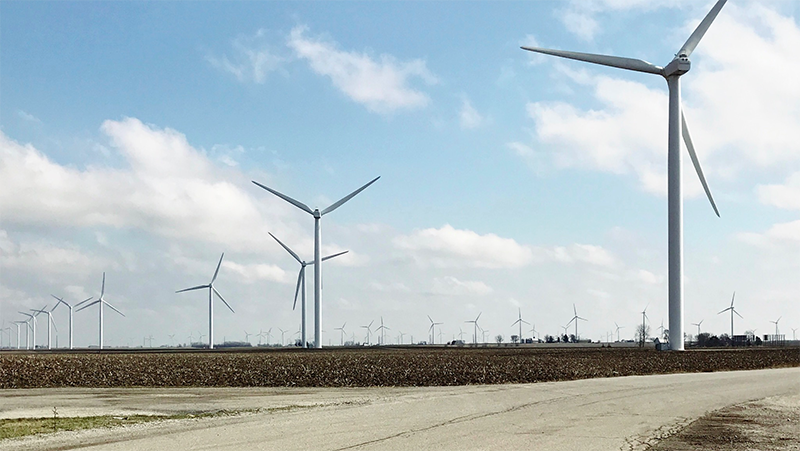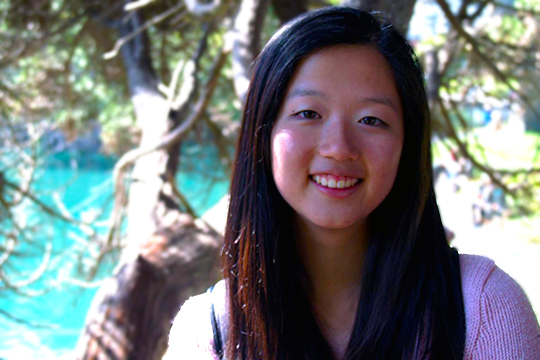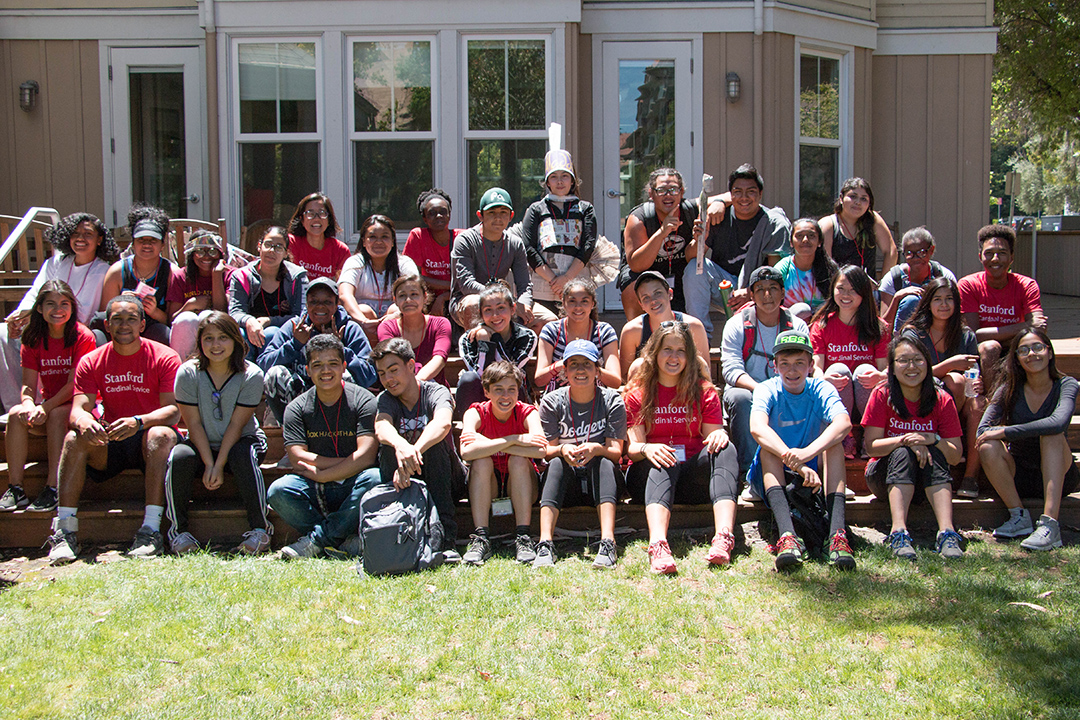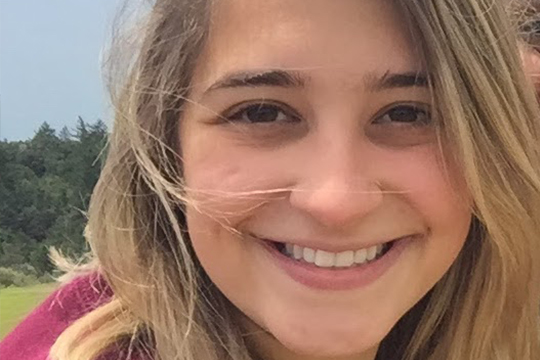Posts published in September, 2017

No small task
 By Noah Garcia, M.A. ’15 (Public Policy)
By Noah Garcia, M.A. ’15 (Public Policy)
I hopped off a cozy rush hour “L” train and walked into the office at the city’s Civic Opera Building for the first time. Any hazy ideas I had about the work quickly came into sharp focus: Drafting written comments and reports. Liaising with other environmental organizations and utilities. And reading way too much email.
When I accepted my fellowship with the Natural Resources Defense Council (NRDC) in Chicago, I was excited and anxious about the fellowship’s broad clean energy scope. I felt that the classes I had taken in college had prepared me, at a high level, for work that lay ahead. But so much learning took place on the job.
Moving the needle on clean energy development in the Midwest is no small task. I feel proud to have worked on NRDC teams that drove bold renewable energy and energy efficiency legislation in Illinois. I feel proud to have helped spur electric vehicle adoption in Ohio through multi-party agreements to fund critical infrastructure. And I am in awe of what I have seen my colleagues accomplish. Through it all, Stanford has been the supportive platform I have used to explore these areas of interest in the environmental sphere.
Noah was a 2015 Schneider Fellow. Schneider Fellows work at leading U.S. nongovernmental organizations (NGOs) to tackle sustainable energy challenges.

Wherever I was needed most
By Angela Li, ’17 (Biomedical Computation)
I first met Yvette* when I was assigned to be her interpreter during a routine appointment, and we talked for over an hour on our way out of the clinic. She opened up to me about her struggles with depression, and I listened as she shared her story: crippling loneliness as a recent immigrant, financial woes, an absent husband. We also connected over our shared love of Oaxaca, Mexico, her hometown, and at the end of our conversation, she was in better spirits, even a bit hopeful. As she thanked me profusely, I was delighted to see her genuinely smile for the first time that day.
As a Community Health Advocacy Fellow, I have had the privilege of getting to know people like Yvette while volunteering at MayView, a community health center that serves local low-income patients. During weekly shifts, I would help wherever I was needed most: as an interpreter, doing intake and vitals, or even comforting children as they were getting their blood drawn. In addition, I helped develop an online patient portal and customize it to the needs of MayView patients. This entailed not only applying the community health principles I had learned in the classroom, but also working with individual patients, teaching them how to use this tool and empowering them to proactively manage their health.
I look forward to caring and advocating for underserved patients in the future as a physician.
*Not her real name

Summer Saturdays at Stanford
By Sophia Kim, program director for the High School Support Initiative at the Haas Center for Public Service
 The High School Support Initiative ran Summer Saturdays at Stanford, a new summer program for youth from the high schools that we are partnered with: Gunn, Menlo-Atherton, and Sequoia high schools. The youth served in the program are from marginalized communities locally and were identified by our partners to apply for the program. All together 27 youth participated with the support of 10 Stanford student volunteers. It was a wonderful four Saturdays of workshops on such topics as resume building and college preparation along with field trips kayaking in the Bay, to SF State, and to Huddart Park in Woodside.
The High School Support Initiative ran Summer Saturdays at Stanford, a new summer program for youth from the high schools that we are partnered with: Gunn, Menlo-Atherton, and Sequoia high schools. The youth served in the program are from marginalized communities locally and were identified by our partners to apply for the program. All together 27 youth participated with the support of 10 Stanford student volunteers. It was a wonderful four Saturdays of workshops on such topics as resume building and college preparation along with field trips kayaking in the Bay, to SF State, and to Huddart Park in Woodside.
Participants had positive feedback about the program, saying they learned a lot and valued getting to work with the Stanford students. We are planning follow up sessions during the school year to bring the youth and volunteers back together in more activities.
 Here are a few quotes from youth participants:
Here are a few quotes from youth participants:
- I really enjoyed this program, every single minute of it. This went by really fast but it definitely made this my favorite summer.
- I wanted to say this was an amazing opportunity to get to know the Stanford students! You guys are the best, you guys are truly amazing! Best wishes to the volunteers.
- I really appreciate what you guys did for us, paying for our food and providing us with your time. Thank you so much! I learned a lot!
- It was really good because it taught us a lot.
And a few quotes from Stanford student volunteers:
- I love doing volunteer work with children, outside of simply tutoring (which is important too!) Between this program and Kesem, I’ve found two great communities full of love and adventure, and have had one of the best summers.
- I didn’t realize how impactful a 4 weekend program could be. It was good that we were reasonable with how much could be done, but I also learned not to underestimate the importance of exposure to topics in college access. On the last day, I was surprised with how much the students took away from the program, especially during their mini open-mic speeches.
- I would wake up each Saturday dreading the early morning only to fall in love with the day.

Capable
By Sophia Laurenzi, ’17 (Psychology)
At the end of the graduation lunch for the Hope House Scholars Program, a woman from Hope House thanked the teaching team for treating her without judgment and with the sense that she is capable.
Through tutoring at Hope House, a residential recovery program that women are often court-mandated to, and volunteering with The Last Mile, a start-up that teaches coding and professional skills to incarcerated individuals, I have worked with dozens of people who society sees as incapable–incapable of learning, of changing, of redemption. It has been the deepest joy of my time at Stanford to witness those involved with the criminal justice system shift from seeing themselves as incapable to capable.
The smallest moments can instill this confidence; learning a dance step in the Cardinal Service Dance in Prison course, writing a topic sentence, sharing a thought in a group discussion. These experiences have taught me that it is not ethical or even possible to try to “change” individuals in the criminal justice system. It is possible, and beautiful, to build relationships, environments, and skills that support others to tap into the universal human potential for change within themselves.
